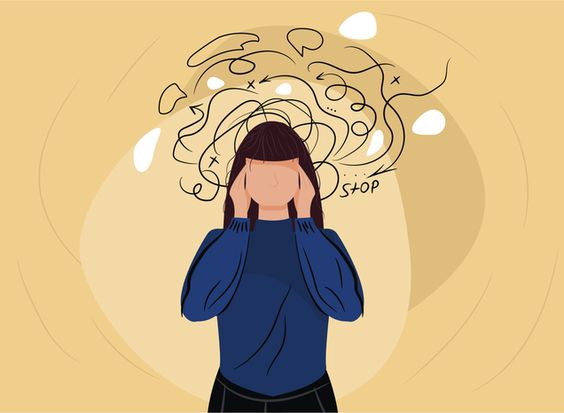Introduction:
Anxiety is a normal human emotion that everyone experiences from time to time. It's that feeling of worry, nervousness, or unease that we all get when faced with a challenging situation, like a job interview or a big test. However, when anxiety becomes persistent, overwhelming, and begins to interfere with daily life, it may be a sign of an anxiety disorder.

Anxiety disorders are the most common mental illness in the United States, affecting millions of adults each year. These disorders are characterized by excessive fear and anxiety that is out of proportion to the actual threat or situation. This can manifest in a variety of ways, including physical symptoms such as a racing heart, sweating, and difficulty breathing, as well as emotional and behavioral changes like irritability, restlessness, and difficulty concentrating.
Types of Anxiety Disorders
There are several different types of anxiety disorders, each with its unique set of symptoms and challenges. Some of the most common types include:
- Generalized Anxiety Disorder (GAD): Characterized by persistent and excessive worry about everyday things, such as work, finances, health, or family.
- Panic Disorder: Marked by recurrent and unexpected panic attacks, which are sudden episodes of intense fear that cause physical symptoms like a racing heart, chest pain, dizziness, and shortness of breath.
- Social Anxiety Disorder: Involves intense fear of social situations and a fear of being judged, humiliated, or rejected by others.
- Specific Phobias: An intense and irrational fear of a specific object or situation, such as spiders, heights, or flying.
Seeking Help and Treatment
Living with an anxiety disorder can be incredibly challenging, but it's important to remember that you don't have to suffer in silence. With proper treatment and support, individuals with anxiety disorders can manage their symptoms and live full and meaningful lives.
Treatment for anxiety disorders typically involves a combination of therapy, lifestyle changes, and sometimes medication. Cognitive Behavioral Therapy (CBT) is a particularly effective form of therapy that helps individuals identify and change negative thought patterns and behaviors that contribute to anxiety.
If you are struggling with anxiety, don't hesitate to reach out to a mental health professional. With the right support, you can take control of your anxiety and live a happier, healthier life.

.jpg)